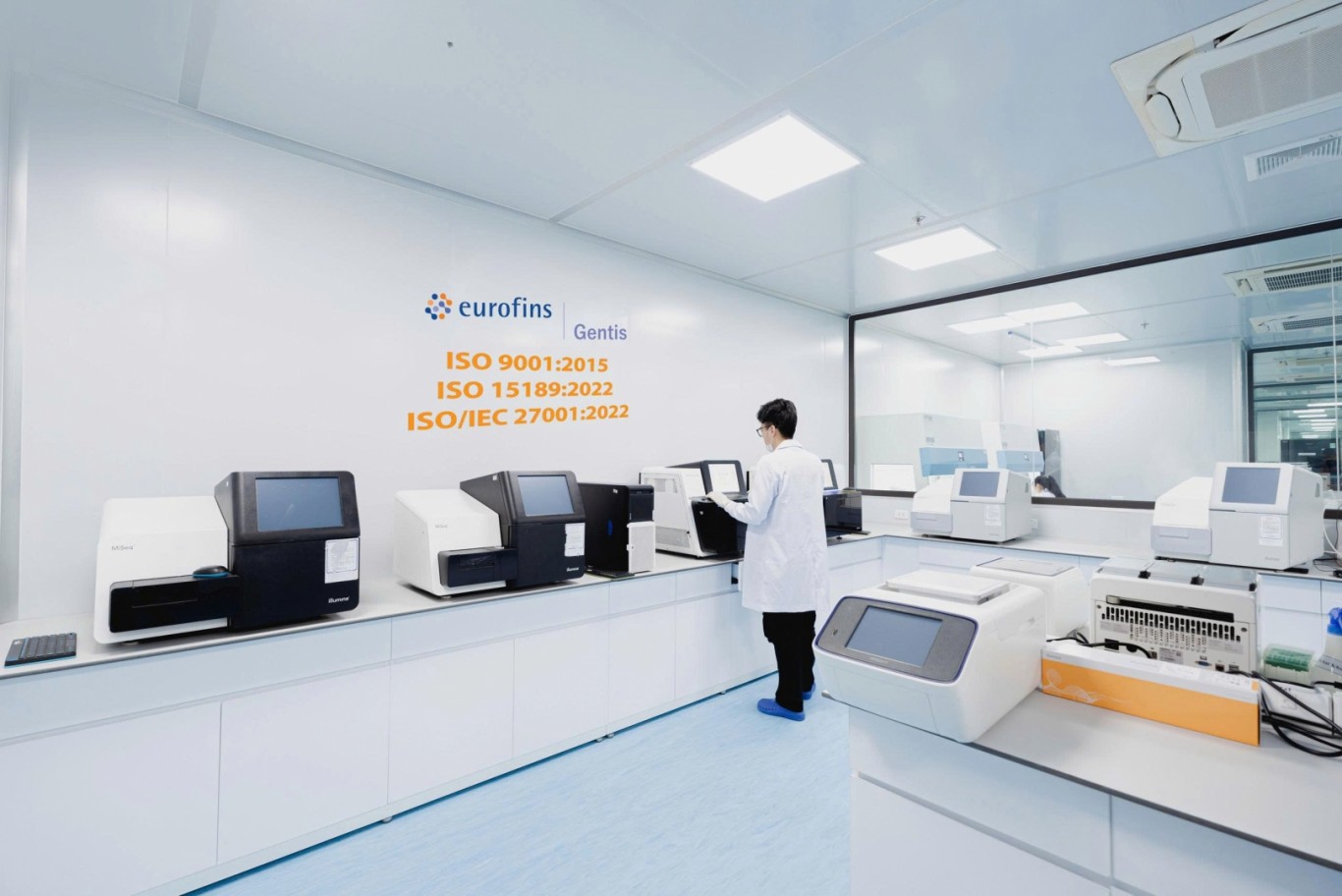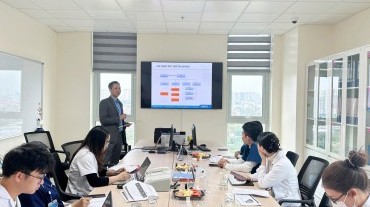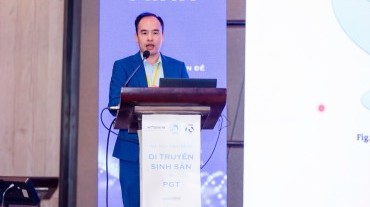According to Dr. Pham Dinh Minh (Director of R&D at GENTIS), reproductive support in Vietnam has recently evolved into a major medical specialty, significantly advancing in depth. Particularly, with recent progress in biomedical technology, especially next-generation gene sequencing, clinicians can now uncover the molecular causes of diseases, leading to personalized treatment for infertility.
From the clinical perspective, Prof. PhD. MD. Nguyen Dinh Tao notes: “As technology advances, the desire to have healthy babies free from genetic diseases is justified. Today, there are numerous reproductive support and molecular genetic techniques available. Notable tests that provide social benefits for families desiring healthy babies include PGT-A and PGT-M.”
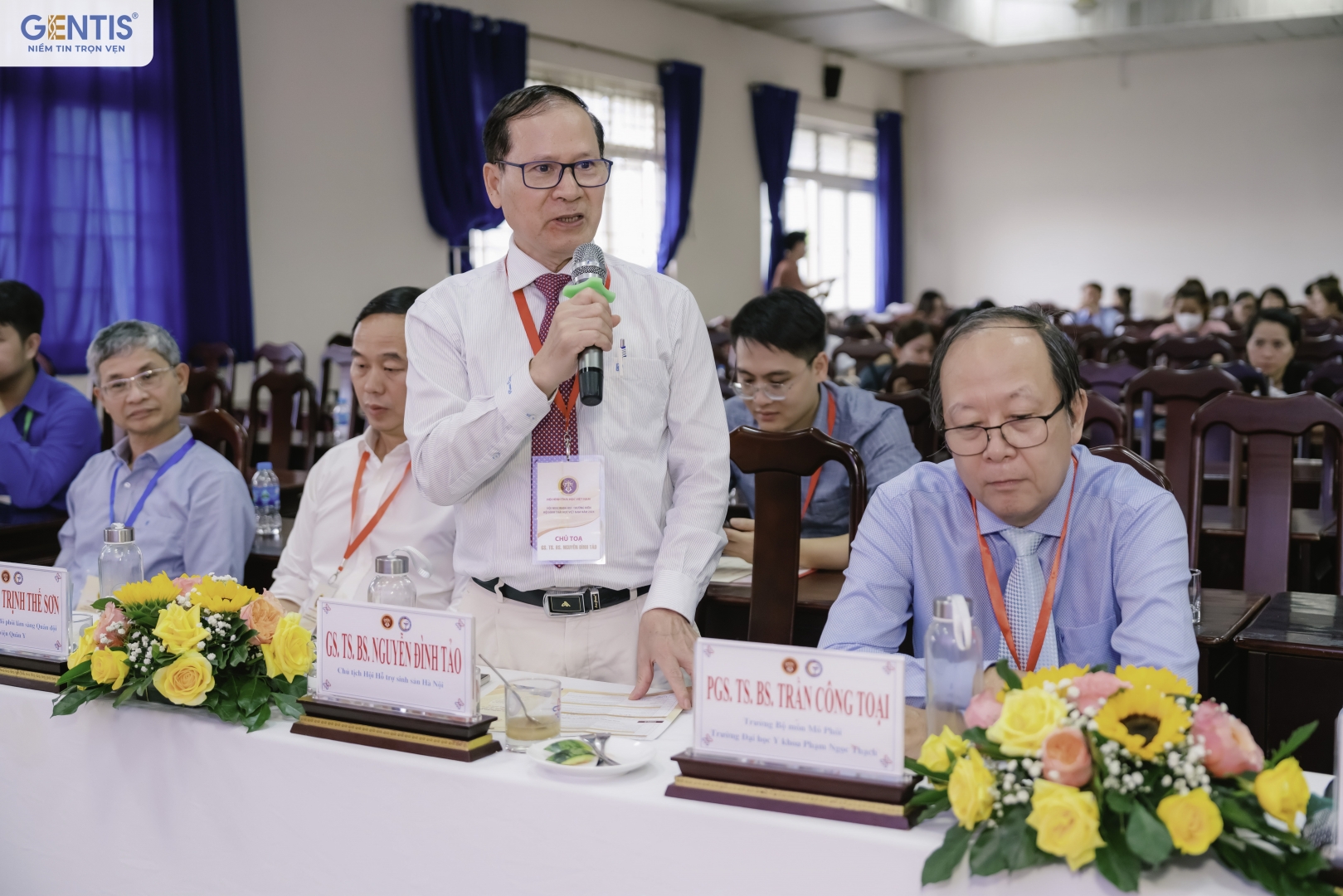 Prof. PhD. MD. Nguyen Dinh Tao, Chair of the Vietnam Morphological Society Scientific Conference 2024
Prof. PhD. MD. Nguyen Dinh Tao, Chair of the Vietnam Morphological Society Scientific Conference 2024
Discussing eligible subjects for genetic testing before embryo transfer, Dr. Nguyen Ngoc Diep (Army Clinical Embryology Institute) states: “In general, apart from cases where parents carry disease genes, all couples wishing for children should undergo genetic testing before implantation to ensure healthy offspring. Additionally, those at high risk for chromosomal abnormalities or those with high risks of abnormal embryo development, such as older mothers (over 35), repeated miscarriages, or a history of implantation failures, should undergo PGT-A testing. However, cases with high chromosomal abnormalities despite parents not carrying disease genes should also consider genetic testing before implantation.”
In addition to basic PGT tests for pre-implantation genetic screening, couples can also consider two special PGT packages: PGT-Max 1 and One PGT-M.
- PGT-Max 1: Detects abnormalities in the 23 pairs of chromosomes and large chromosomal deletions >5Mb, as well as microdeletions from 2 Mb, such as 22q11.2 (DiGeorge Syndrome) and 1p36 deletions.
- One PGT-M: Provides a streamlined process for diseases in the One PGT-M panel, reducing the testing time for rare diseases to 20 days or less.
“Both partners' reproductive health should be assessed simultaneously, including medical history, lifestyle, psychological factors, physical examination, and diagnostic tests. This helps in classifying patients based on various functional and morphological aspects, leading to differentiated treatment and diagnosis methods,” adds Associate Professor Nguyen Quang (Vietnam-Germany Friendship Hospital).
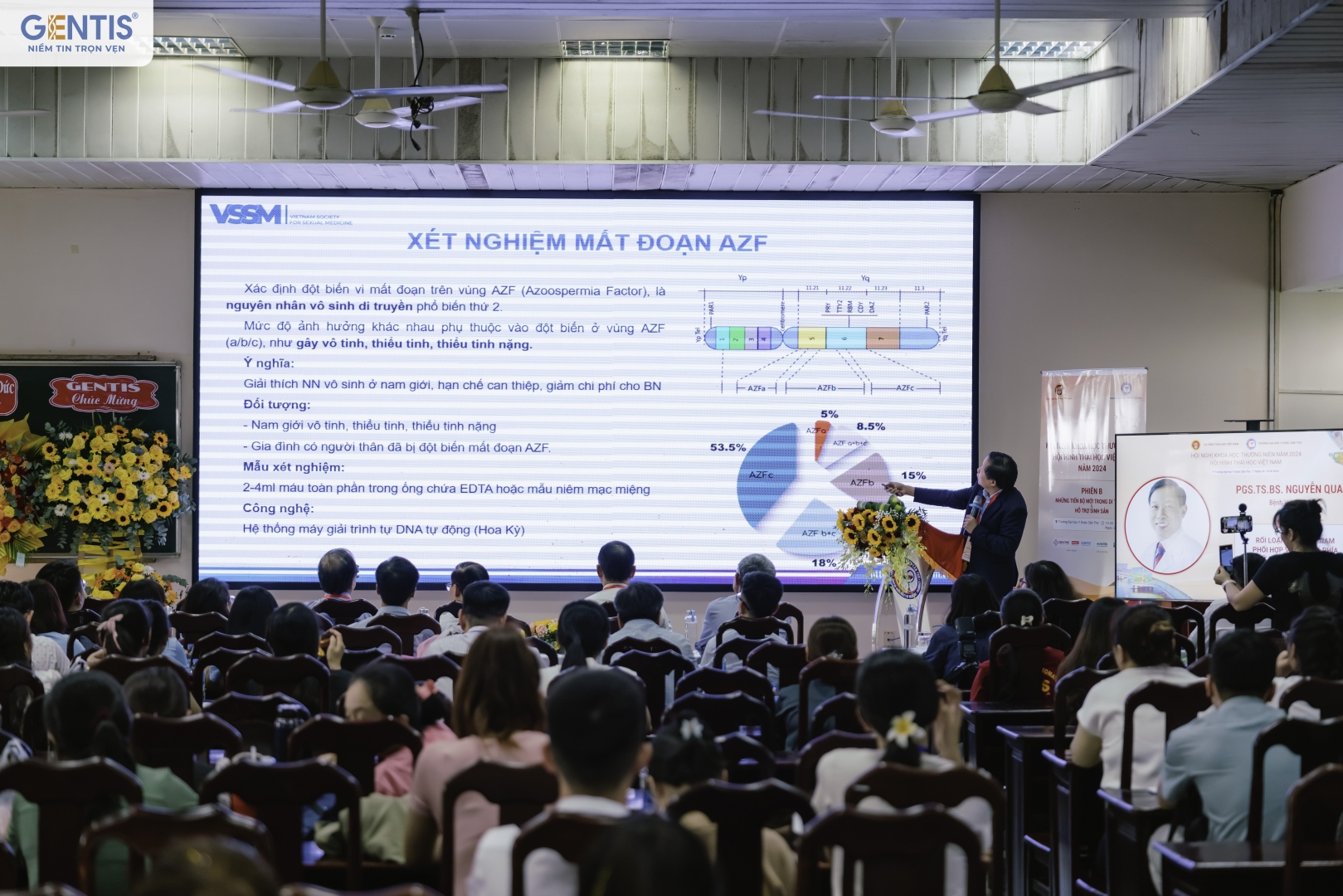 Assoc.Prof. PhD. MD. Nguyen Quang reports at the Vietnam Morphological Society Scientific Conference 2024
Assoc.Prof. PhD. MD. Nguyen Quang reports at the Vietnam Morphological Society Scientific Conference 2024
Assoc. Prof. Quang also emphasizes: “Genetic testing plays a crucial role in identifying the causes of infertility and reproductive support treatment. Tests such as Fertiscan (analyzing 120 genes for genetic causes of infertility in both genders), Karyotype (detecting chromosomal abnormalities), sex hormones (evaluating reproductive health), STDs (identifying common sexually transmitted pathogens), CFTR (detecting 22 CFTR gene mutations causing male infertility due to obstructive azoospermia or absent vas deferens) are essential.”
“We know that besides female infertility, male infertility is increasingly gaining attention. Genetic abnormalities are a common cause that significantly impacts reproductive health. To detect these abnormalities, besides clinical examination, genetic testing is crucial. Routine recommended tests include karyotyping and AZF microdeletion tests, especially for patients with sperm counts below 5,000,000/ml. Additionally, Fertiscan can screen for single-gene mutations related to male infertility,” adds Dr. Nguyen Ngoc Nhat (Army Clinical Embryology Institute).
Sharing clinical practice experiences in treating infertile couples, Assoc. Prof . PhD. MD Luong Thi Lan Anh notes: “Genetics and reproduction are closely linked. Utilizing technological advancements and combining various methods helps to address testing limitations, diversify disease coverage, and optimize cost and result turnaround time.”
Genetics is involved in nearly all aspects of reproductive support, including diagnosing genetic diseases, preventing them in future generations, diagnosing infertility causes, preventing recurrent miscarriages, and improving reproductive outcomes. The understanding of pathogenesis and scientific advancements have led to superior tests in reproductive support. GENTIS is proud to have the leading genetic testing center in Vietnam with advanced equipment. Notably, GENTIS is also the first institution in Vietnam to achieve international standards – ISO 15189:2022 and ISO 27001:2022, while adhering to strict Ministry of Health standards and international external quality control programs.
Currently, GENTIS offers comprehensive genetic testing to identify causes of infertility in both genders, screen for genetic abnormalities, prevent rare diseases in pre-implantation embryos, support embryo transfer, and monitor pregnancy. With advancements in genetics and reproductive support, GENTIS's genetic tests aim to assist infertile couples effectively, says Master Nguyen Thi Hue (GENTIS).
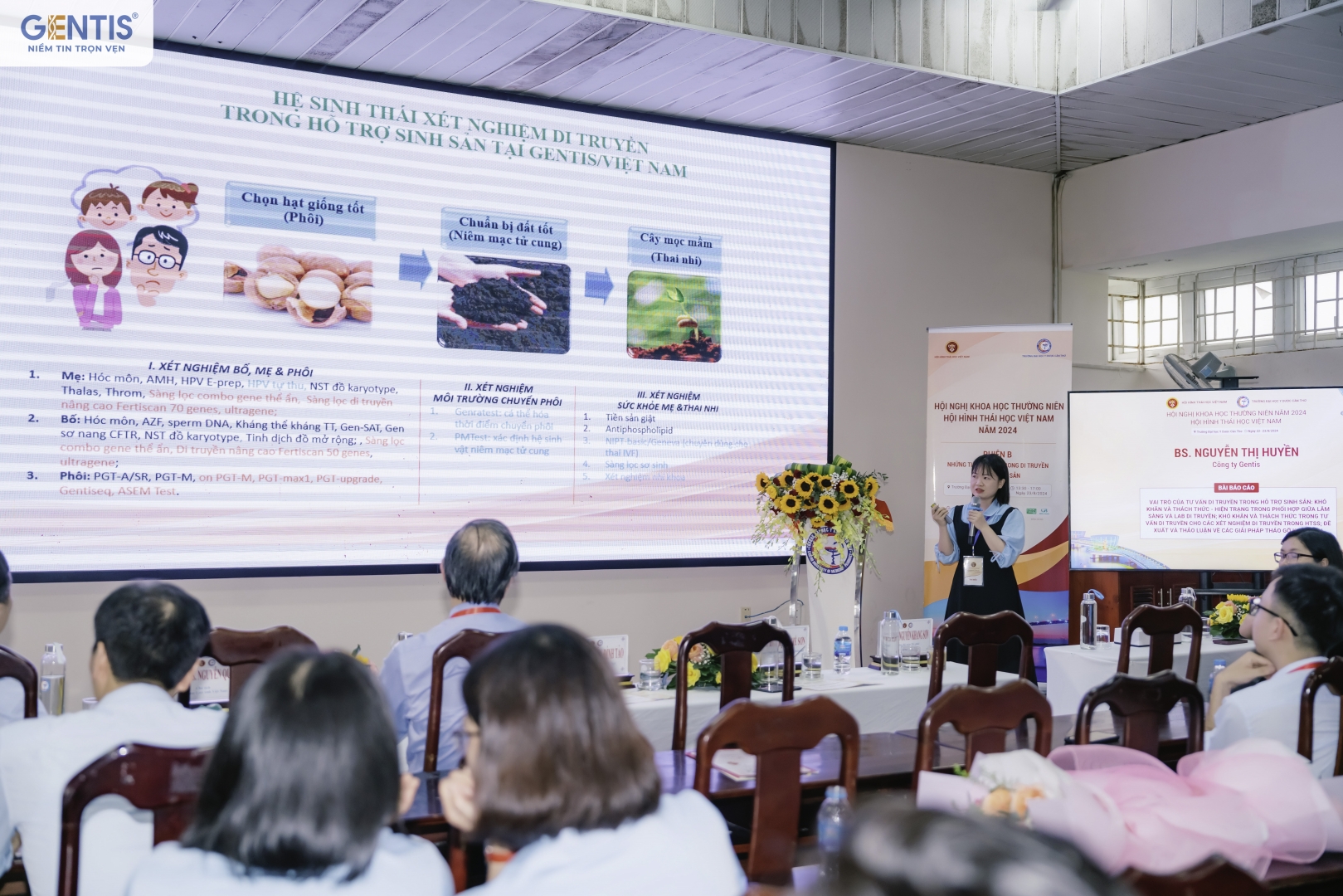 MSc. Nguyen Thi Huyen (GENTIS) reports at the Vietnam Morphological Society Scientific Conference
MSc. Nguyen Thi Huyen (GENTIS) reports at the Vietnam Morphological Society Scientific Conference
In reproductive support, genetic counseling has become more common, focusing on providing information about genetic disorders to patients, other health professionals, and the community. However, genetic counseling still faces challenges, including diagnostic issues, testing technology, result interpretation, counseling skills, and patient psychological support. Solutions involve enhancing knowledge, experience, and professional exchange among counselors, improving and developing testing technologies, and providing necessary psychological support for effective genetic counseling, says MSc. Nguyen Thi Huyen (GENTIS).

